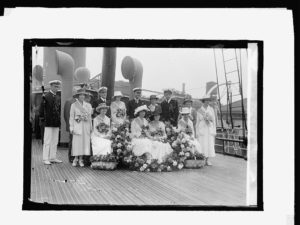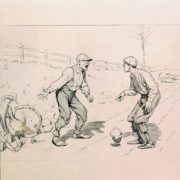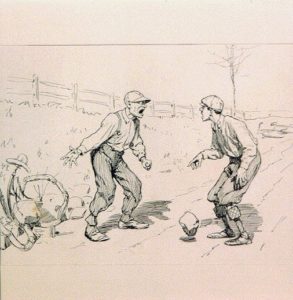Is Memorial Day, May 27, a Court Holiday? (2019 edition)
Memorial Day–May 27, 2019–is a day that we remember and honor those that have made the ultimate sacrifice for our freedom. You probably already suspect that it is a court holiday, too

Memorial Day in 1918, just over a century ago.
But if you’re anything like us, you want–nigh, you NEED–to see it in writing from an authoritative source and you’ll probably be checking court websites at 11 p.m. on Sunday night to be sure. Let us help.
The short answer is YES in Florida state courts. Here’s the authority.
In Florida state courts, Memorial Day is one of the enumerated “Legal Holidays” in Florida Rule of Judicial Procedure 2.514(a)(6)(A) (.pdf) (defining “Legal Holiday”).
Additionally, every court lists Memorial Day on their own calendars:
Florida Appellate Courts
- Supreme Court: Yearly Court Schedule
- First District: Administrative Order 18-2 (.pdf)
- Second District: Court Holidays
- Third District: Court Holidays
- Fourth District: Court Holidays
- Fifth District: Holiday Calendar
Florida Circuit Courts
- 1st Circuit: Court Holidays
- 2nd Circuit: Court holidays (.pdf)
- 3rd Circuit: Holiday Calendar
- 4th Circuit: Court Holiday Schedule
- 5th Circuit: Court Holidays
- 6th Circuit: Court Holidays
- 7th Circuit: Courthouse Hours and Holidays
- 8th Circuit: Hours of Operation and Holidays
- 9th Circuit: Court Holidays
- 10th Circuit: Hours of Operation & Holidays
- 11th Circuit: Courthouse Holidays/Closings
- 12th Circuit: Holiday Calendar
- 13th Circuit: Court Holidays
- 14th Circuit: Court Holidays
- 15th Circuit: Court Hours and Holiday Schedule
- 16th Circuit: Court Calendar
- 17th Circuit: Court Closures
- 18th Circuit: Court Holiday Calendar
- 19th Circuit: Courthouse Holidays
- 20th Circuit: 2019 Holiday Schedule (.pdf)
Are you in federal court? You get the day off, too.
- Eleventh Circuit Court of Appeals: Federal Holidays
- Northern District of Florida: Court Holidays
- Middle District of Florida: Holidays
- Southern District of Florida: Court Hours/Holidays
Was this post helpful? Subscribe for more!
This post is a continuation of our “Is it a holiday” series:
https://floridaappellate.com/2019/04/18/is-good-friday-a-court-holiday-2019-edition/
https://floridaappellate.com/2014/04/18/is-good-friday-a-holiday-it-depends/
https://floridaappellate.com/2015/01/19/is-martin-luther-king-day-a-holiday-in-florida-courts/
If you want to get updates on court holidays and other appellate happenings, subscribe to this blog under the “FLORIDA APPELLATE PROCEDURE UPDATES BY EMAIL” on this page.



